Seven Early-Career Researchers Honored With 2024 APS Janet Taylor Spence Award
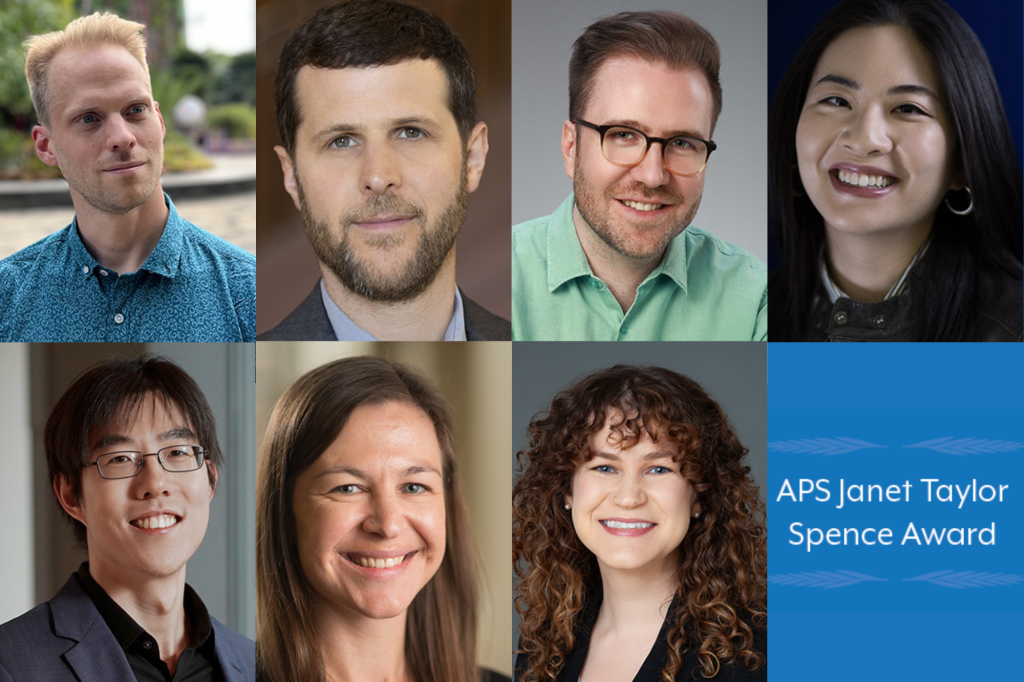
2024 Spence Recipients, clockwise from top left: Sacha Epskamp, Amit Goldenberg, Jonas Kunst, Peggy Liu, Monica Rosenberg, Leah Richmond-Rakerd, Jackson Lu.
Seven psychological scientists, conducting cutting-edge research on topics ranging from self-regulation to collective emotions to multicultural experiences, are recipients of the 2024 APS Janet Taylor Spence Award for Transformative Early Career Contributions.
First awarded in 2010 and named after APS’s first president, the Spence Award honors particularly creative and promising APS members who embody the future of the field.
The recipients will be honored in May at the 2024 APS Annual Convention in San Francisco, California. Spence Awardees are also automatically conferred status as APS Fellows in the review cycle following their award.
Learn more about the APS Janet Taylor Spence Award for Transformative Early Career Contributions, including previous recipients, the selection committee, and the nominations process and criteria. Listen to interviews with the 2023 Spence awardees on APS’s Under the Cortex podcast.
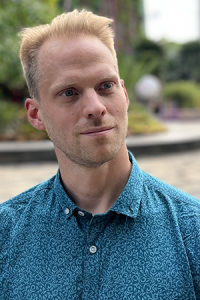
Sacha Epskamp
National University of Singapore
PhD 2017, University of Amsterdam
Epskamp has been at the forefront of development and innovation in the nascent field of network psychometrics—explorative methods for estimating network structures from cross-sectional and longitudinal psychological datasets. His work in network psychometrics, which includes technical contributions, several free software packages, and educative materials, has transformed network analysis from a theoretical framework into a practical methodology that is accessible and available to many applied researchers. Beyond his work in network psychometrics, Epskamp has made several contributions to research on replicability and reproducibility and software suites designed to improve methodological practices in psychological science.
Sacha Epskamp’s faculty profile
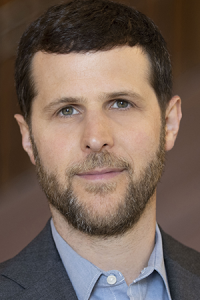
Amit Goldenberg
Harvard Business School
PhD 2019, Stanford University
Goldenberg’s work lies at the interface of social and cognitive psychology and affective science. He studies the emergence and regulation of collective emotions. His projects feature mixed experimental designs and innovative methods, including big data and computational models designed to explore the mechanisms driving the observed effects. Goldenberg’s research examines the processes that contribute to group emotionality, including emotion contagion, social cognition, and social network effects. In the realm of contagion, Goldenberg’s research suggests that people’s tendency to attend and react to stronger emotions contributes to an increase in collective emotions. In terms of cognition, his research shows that people tend to overestimate what crowds feel because they focus on more emotional members of that crowd. Finally, when looking at how networks are formed as a result of emotion expressions, Goldenberg has shown that group emotionality can increase in political contexts because people prefer to interact with others who express strong emotions that are aligned with their own political views. Goldenberg has also conducted impressive fieldwork in Israel, developing interventions for conflict resolution through emotional regulation and using mindsets to improve intergroup contact. His work is advancing our understanding of emotions in groups and is demonstrating new ways to study social interactions.
Amit Goldenberg’s faculty profile

Jonas Kunst
University of Oslo
PhD 2016, University of Oslo
Using a range of innovative methods and sophisticated statistical analyses, Kunst’s research focuses on acculturation, intergroup relations, extremism, conspiracy theories and misinformation, and animal-human relationships. His work has challenged entrenched beliefs within the realm of cultural psychology, catalyzing the emergence of novel trajectories or sub-disciplines. His research has demonstrated how social, cultural, and religious factors that promote a sense of common or dual identity can foster positive relations between diverse groups in some instances but can have counterproductive effects in others. He has also illustrated how variables ranging from structural inequality to individual life trajectories influence attitudes toward social inequality. In other work, Kunst has shown how citizens who have a vicarious sense of “oneness” with political leaders can escalate their willingness to undertake violent actions against outgroups such as immigrants and political opponents. He has demonstrated the prospective negative impact of conspiracy theories on health behaviors and intergroup relations across diverse contexts. Lastly, he has enriched the growing scientific exploration of our relationship with animals. He has illuminated how people tend to cognitively dissociate animals from meat, reinforcing meat consumption by mitigating feelings of empathy and disgust. His pioneering investigations into this intricate dynamic offer new avenues for understanding and influencing dietary choices.
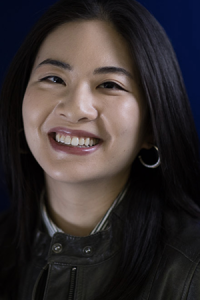
Peggy Liu
University of Pittsburgh
PhD 2016, Duke University
Liu is a leading expert on consumer behavior from the social and health perspectives. Her research has advanced the understanding of how consumption decisions affect interpersonal relationships and vice versa. She conducts rigorous research on how people’s choices can weaken or strengthen social connections. Her work examines when and why peoples’ consumption choices may offend others, as well as how people can avoid offending others, such as by matching the choices of a stigmatized other in joint consumption contexts. Her work also examines how people make choices for and with others across an array of contexts, including caregiving, gift-giving, and household decision-making. Liu has also illuminated the use of different policy approaches for improving the healthiness of eating behavior, including examining the role of different portion sizing and pricing approaches to food, as well as the role of information provision formats. She has made pioneering contributions to eating behavior research by examining vice-virtue bundles, showing that options with just 25% vices and 75% virtues are rated as being as tasty as options with higher proportions of vices. Liu’s work also examines the intersection of the social and health perspectives, examining such topics as how consumers’ social contexts affect how they prefer to pursue financial and health goals. Overall, Liu’s work adds insights to consumer psychology, social psychology, and health psychology.
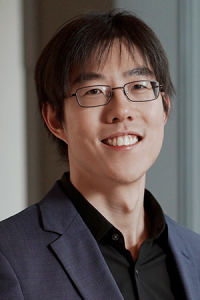
Jackson Lu
MIT
PhD 2018, Columbia Business School
Lu’s groundbreaking research on the “Bamboo Ceiling” has stimulated attention toward the neglected barriers that East Asians face in the United States. Asians are often viewed as the “model minority,” yet Lu’s work fundamentally challenges this rosy view by revealing the challenges East Asians face in leadership attainment, starting salaries, and academic performance. Lu also studies the benefits and drawbacks of multicultural experiences such as working abroad, intercultural relationships, and multicultural work teams. For example, his studies suggest that broad multicultural experiences can increase cognitive flexibility—enhancing creativity, innovation, and entrepreneurship—but can also increase moral flexibility. Lu’s innovative scientific methods include archival analysis, longitudinal field experiments, experience sampling, social network analysis, and hormonal analysis. Lu’s work has advanced multiple areas of exploration, including industrial-organizational, social, cognitive, and educational psychology.
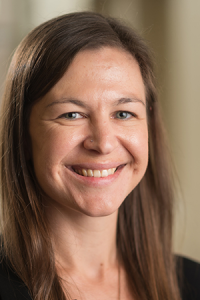
Leah Richmond-Rakerd
University of Michigan
PhD 2017, University of Missouri
Richmond-Rakerd studies emotional and behavioral dysregulation across the life course. Her work takes a whole-person perspective on mental and physical functioning. She uses advanced statistical models to integrate genetic, psychological, and physical-health perspectives on self-regulation, and her use of longitudinal birth-cohort studies enables her to chart how self-regulation difficulties impact development and aging. She has demonstrated links between self-injurious behavior and violent offending; unpacked the etiology of the association between early trauma exposure and later self-harm; and identified psychological contributors to variability in the pace at which individuals age, connecting childhood self-control difficulties to accelerated midlife biological and brain aging. Richmond-Rakerd’s research has also shown how big-data resources, including administrative registers, can be used to generate insights into development and health. As a result of her interdisciplinary approach to the study of self-regulation, her work is influencing multiple fields of psychological science and has implications for public health and public policy.
Leah Richmond-Rakerd’s faculty profile

Monica Rosenberg
University of Chicago
PhD 2017, Yale University
Rosenberg explores how and why attention differs across individuals, fluctuates over time, and changes across child and adolescent development. She is also interested in understanding how attention interacts with cognitive processes such as learning, memory, and narrative and event comprehension. Rosenberg has pioneered the use of individual brain network connectivity patterns to predict differences in behavior between people and changes in behavior and mental states within people across time. Her work has revealed, for example, that data collected while a person is simply resting in an fMRI scanner can be used to predict aspects of their behavior, including how well they pay attention and remember information. This work has led to the theoretical notion that one can characterize an individual’s cognitive abilities based on their neural network patterns. Her discoveries have launched a whole new approach to the study of brain functions that underlie human cognition and behavior.
Monica Rosenberg’s faculty profile
Learn more about the APS Janet Taylor Spence Award for Transformative Early Career Contributions.
Feedback on this article? Email [email protected] or login to comment.





APS regularly opens certain online articles for discussion on our website. Effective February 2021, you must be a logged-in APS member to post comments. By posting a comment, you agree to our Community Guidelines and the display of your profile information, including your name and affiliation. Any opinions, findings, conclusions, or recommendations present in article comments are those of the writers and do not necessarily reflect the views of APS or the article’s author. For more information, please see our Community Guidelines.
Please login with your APS account to comment.